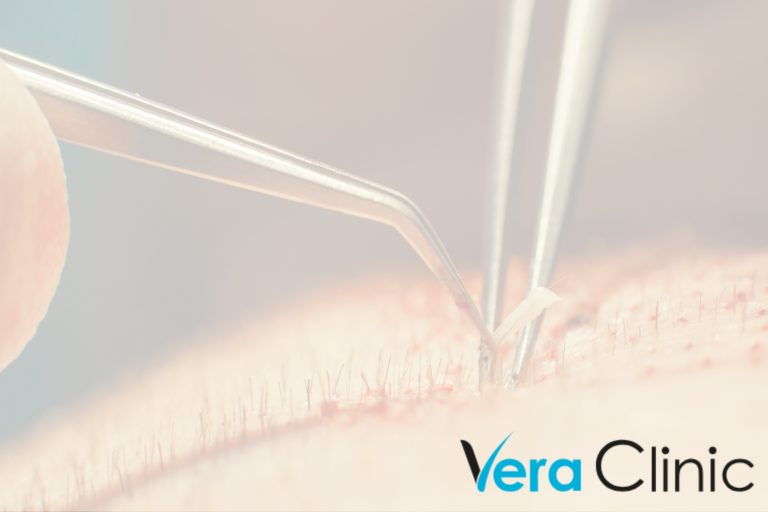
Erectile dysfunction (ED) is a widespread sexual health issue affecting 30 million men in America. While ED can present as an obstacle to sexual intimacy, there are various treatments and solutions available for it.
Up to 70% of men with erectile dysfunction can benefit from medications. These treatments work by widening blood vessels in the penis, increasing the circulation of oxygen-rich blood.
1. Medications
Many treatments used to treat diseases may have side effects that negatively affect a patient’s sexual health. While some effects may be minor, others could lead to decreased libido or even erectile dysfunction. Fortunately, physicians trained in sexual health medicine can assist patients in dealing with these issues and finding the appropriate treatment you can visit farmacieproprie.com.
Medical advances have drastically improved the lives of millions around the world, as well as transformed how sexual behavior is viewed. For instance, improvements in HIV prevention and treatment have significantly altered attitudes about homosexuality and the male sex. These modifications have decreased AIDS deaths significantly, making it easier for male homosexuals to lead healthy lives.
However, this has also contributed to an increase in sexually transmitted infections (STIs), such as HIV. These STIs can have serious repercussions for both men and women alike; physicians trained in sexual health medicine can provide effective care to their patients.
Though some evidence has emerged suggesting exercise can be an effective treatment for reducing the risk of sexually transmitted infections (STIs), there is currently no proof that it improves or maintains sexual functioning. Furthermore, exercising has many potential downsides, such as obesity and cardiovascular disease.
Furthermore, many sexually transmitted diseases can be prevented by taking a daily multivitamin and mineral supplement. These nutrients may reduce the risk of infection, boost energy levels, and ease pain.
Another critical element of sexual health is psychological well-being. To better understand how psychological factors influence sexual function and how mental health can be improved through interventions related to sexuality, researchers are actively engaged in this area.
For this Special Issue, we invite manuscripts that explore the relationship between sexuality and psychological well-being. Additionally, we welcome studies aimed at adapting or validating instruments used for measuring psychosexual variables.
Technology has provided youth with unprecedented access to digital learning and communication, such as online educational games and interactive websites. While these resources can help engage students while providing sensitive information, they also present unique challenges for health educators. To effectively use these technologies in their teaching practices and settings, educators need training and support in using them effectively.
2. Surgery
There are various surgical solutions to treat erectile dysfunction (ED). The most popular one is a penile implant, which is an implant that attaches surgically to the patient’s male anatomy and helps improve erectile function – often considered first-line treatment for ED.
However, there are a number of risks associated with this type of surgery. It’s essential to be aware of all potential hazards before scheduling the procedure. Furthermore, bear in mind that the procedure can be uncomfortable and require some downtime for recovery.
Making the decision to undergo this type of surgery should be a joint decision between you and your doctor. For some patients, this may be the best course of action in treating their erectile dysfunction; however, others may prefer other approaches for treating it.
In such cases, you and your doctor can explore various options for improving erectile function and overall health. These could include physical therapy, medication, lifestyle modifications, or other types of interventions.
Another way to enhance your erectile function is by abstaining from smoking and alcohol. These habits can lead to impotence as well as other health issues, and also damage to the prostate and other organs. While it may be hard to break these bad habits, consulting a doctor is the best way to stop them.
Maintaining good blood pressure and abstaining from taking certain medications that could impair erectile function, such as diuretics and nitrates, are also essential. Doing so could pose risks to your heart, kidneys, and liver.
If you have high blood pressure, your doctor may suggest an antihypertensive medication. This is an effective way to lower your pulse, making surgery and recovery much smoother for you.
The future of erectile dysfunction treatment is sure to be filled with exciting advances and discoveries, due to the abundance of scientific research being done in this area. These advancements can be translated into new pharmacotherapeutics and surgical procedures that aim to enhance someone’s erectile function.
3. Hormones
Modern medical science has enabled us to gain a better insight into the human body and how it functions, enabling medical professionals to develop treatments and technologies that promote sexual health.
One of the greatest advances in sexual medicine has been the development of hormones to treat erectile dysfunction (ED). These drugs work by stimulating blood vessels and nerves to produce a strong, long-lasting erection. They come as tablets, injections or patches and can be taken orally, intravenously or topically.
Hormones are chemical messengers secreted from glands that control bodily processes. They travel through the bloodstream and are then recognized by receptor sites on cells for regulation in specific organs or tissues.
Women’s ovaries release hormones that regulate their menstrual cycle and help prepare them for pregnancy. Additionally, these hormones affect bone growth, moods, and libido. When estrogen levels decrease, women may experience hot flashes, weight gain, and decreased sexual drive.
These changes in a woman’s hormone levels can cause discomfort or depression. They also have the potential to lead to various health complications, such as gastrointestinal issues and infections.
Women with low estrogen levels require a different treatment than those with normal levels. The aim of this therapy is to boost the amount of estrogen produced in a woman’s ovaries.
Studies have demonstrated the efficacy of this treatment for treating various estrogen-related disorders. Unfortunately, these drugs can be costly and may not be appropriate for all patients.
Another hormonally related disorder that is highly prevalent among sexually active women is hypoactive sexual desire disorder (HSDD). This condition presents with persistent difficulties with sexual orgasm, desire, or response.
Although HSDD is a chronic disorder, it can be treated and managed through treatment and counseling. Therefore, women suffering from this disorder should be referred to an experienced sexual medicine professional for further assistance.
This disorder is a prevalent issue that can have a significant impact on someone’s life. It often leads to feelings of social isolation and depression, as well as decreased intimacy and self-worth.
4. Technology
Technology is an expansive concept that encompasses both tangible and intangible tools and techniques. While these devices can have the potential for improving human welfare, they also pose risks to individuals, communities, and the planet as a whole.
In the past, technology has been seen as a passing trend or novelty; however, recent advancements in artificial intelligence, virtual reality, robotics, and genetic engineering have revolutionized how we perceive ourselves and others’ bodies. These innovations have the potential to drastically improve sexual health awareness while providing more tailored treatments.
Technological innovations have certainly reached the summit, but they can be complex to conceptualize and even more difficult to execute. In an age where connectivity is ubiquitous, the capacity for data integration from different sources to meet a specific objective, coupled with real-time engagement with the outcomes, could revolutionize how we care for ourselves and those around us.
Technology in healthcare can present both practitioners and users with challenges, but the right solutions exist. When applying digital health to health, remember to prioritize those most in need; for instance, HIV self-testing and treatment could be made more efficient by giving consumers smartphone apps that interpret test results. Most impressive of all is how these technologies can be employed outside traditional healthcare settings such as at home or in communities.







